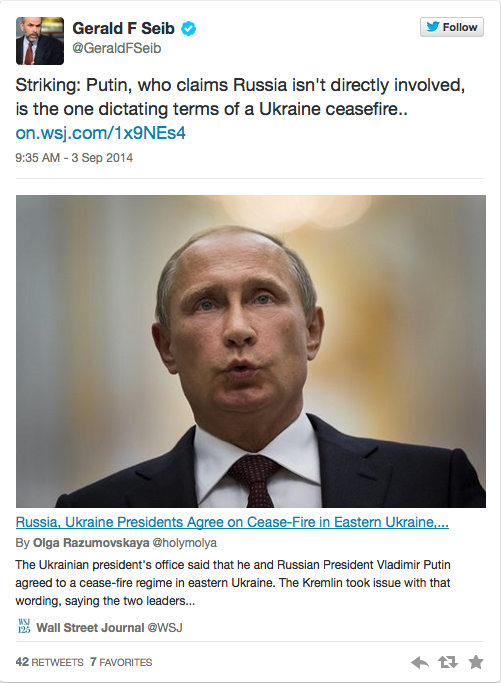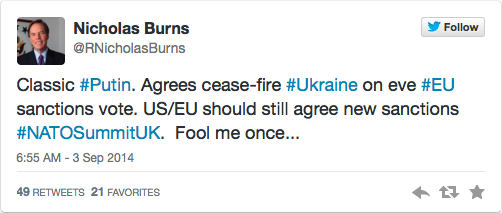Gold is consolidating yesterday’s losses, but remains defensive in the face of a firm dollar and talk of a cease-fire in Ukraine. Focus is now squarely on tomorrow’s ECB policy decision and the U.S. jobs report on Friday.
With regard to the cease-fire in Ukraine, I think the following observations are salient: The first from Gerald F Seib, Washington bureau chief of The Wall Street Journal. The second from Nicholas Burns, Professor of Diplomacy and International Politics at Harvard’s John F. Kennedy School of Government and a former diplomat for the Bush and Clinton administrations.


Given the stagnant growth in Europe, and more significantly the negative trend in prices, the ECB is going to have to do something. Clearly the promises of further easing made in recent months has done little to reverse those trends. The market is demanding action and the trajectory of bond yields and the euro are suggestive on some level of confidence that the central bank will act.
I think there is still some lingering reluctance to take that final plunge into QE. Part of it assuredly has to do with the legal challenges that would quickly follow. The argument that direct asset purchases is in violation of the Maastricht Treaty, certainly has some merit.
However, Draghi must also be concerned about efficacy and return on investment, in light of the dubious success of such programs in the U.S., UK and Japan. After all, trillions of dollars and yen, and hundreds of billions of pounds have been printed and used to buy assets and yet growth remains slow, labor markets remain soft, and deflation worries persist in all three countries.
I’m not sure why anyone would think QE would work any better in Europe, but the ECB risks its credibility by taking rates to the zero-bound and saying they’ve done all they can do. They, like the Fed before them, have suggested that fiscal reforms are now necessary. However, politicians are always loathe to inflict pain on their constituents, so the ball always ends up back in the central banks’ court.
